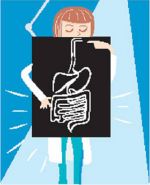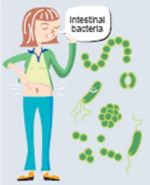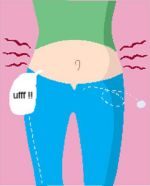

… and take this simple test.

What is Digestion?
Learn more
Digestion is the process that transforms what you eat into nutrients: amino acids, carbohydrates, proteins… These nutrients are turned into energy that your cells use to help in the growth, maintenance and protection of your body. In other words, the nutrients feed your body’s cells and they, in turn, are used in processes necessary to keep you healthy.

What is the digestive system and what does it do?
Learn more
The digestive system transforms food into nutrients that feed your cells, and it removes what your organism does not need or cannot use. As simple as that...!
It consists of the gastrointestinal tract or gut (a tube extending from the mouth to the anus that includes, among others, the stomach and intestine) and various glandular organs such as the liver and the pancreas.

What is intestinal transit?
Learn more
Intestinal transit is the time that food takes to pass through your body from when you eat it until when it comes out. In a healthy adult, this usually takes between 12 and 48 hours, although, as you know, everybody has their own rhythm... Stress, lack of exercise, pregnancy, age and, above all, diet can negatively affect your intestinal transit.

What type of intestinal transit do you have?
Learn more
Your intestinal transit will be considered normal when the transportation of the foods from the mouth to the end of your digestive track takes less than 2 days. If the time for this process takes between 48 and 72 hours, then your intestinal transit is slow. If this is your case, you can do a lot of things to take care of it and improve your slow transit!

Did you know that 100 trillion bacteria live in your intestine?
Learn more
Yes, your intestine is a great ecosystem! It harbours around 100 trillion bacteria of 400 different species. Think upon them kindly as many of them are beneficial to your health. One of their main functions is to protect your body when it faces harmful bacteria and unbalanced intestinal bacteria. These bacteria can cause constipation, diarrhoea and a bloated tummy and are caused, for example, by an unbalanced diet, stress, antibiotics and age.

Where can you find beneficial intestinal bacteria?
Learn more

What causes that uncomfortable feeling of a bloated tummy?
Learn more
A bloated tummy is a key symptom of digestive discomfort and may even cause abdominal pain. It is mainly due to the accumulation of liquids and gases caused by factors like stress or anxiety, Irritable Bowel Syndrome (IBS), constipation and overeating. Exercise, a balanced diet and regular consumption of a clinically proven probiotic may help considerably in reducing this digestive discomfort.

Improving your digestive health is simple
Learn more

Improving your digestive health is easy: The influence of diet
Learn more